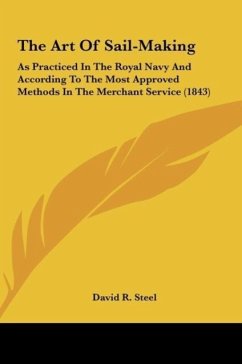Thomas Paine
Prospects On The Rubicon
Or An Investigation Into The Causes And Consequences Of The Politics To Be Agitated At The Meeting Of Parliament (1787)
29,99 €
inkl. MwSt.
Versandfertig in 1-2 Wochen

15 °P sammeln
Thomas Paine
Prospects On The Rubicon
Or An Investigation Into The Causes And Consequences Of The Politics To Be Agitated At The Meeting Of Parliament (1787)
- Gebundenes Buch
- Merkliste
- Auf die Merkliste
- Bewerten Bewerten
- Teilen
- Produkt teilen
- Produkterinnerung
- Produkterinnerung
This book is a facsimile reprint and may contain imperfections such as marks, notations, marginalia and flawed pages.
Andere Kunden interessierten sich auch für
![Some Considerations On The Political State Of The Intermediate Countries Between Persia And India (1835) Some Considerations On The Political State Of The Intermediate Countries Between Persia And India (1835)]() Edward StirlingSome Considerations On The Political State Of The Intermediate Countries Between Persia And India (1835)31,99 €
Edward StirlingSome Considerations On The Political State Of The Intermediate Countries Between Persia And India (1835)31,99 €![New Methods Of Finding The Longitude New Methods Of Finding The Longitude]() Thomas YarrowNew Methods Of Finding The Longitude30,99 €
Thomas YarrowNew Methods Of Finding The Longitude30,99 €![On The Neglect Of Physical Education And Hygiene By Parliament And The Educational Department, As The Principal Cause Of The Degeneration Of The Physique Of The Population (1879) On The Neglect Of Physical Education And Hygiene By Parliament And The Educational Department, As The Principal Cause Of The Degeneration Of The Physique Of The Population (1879)]() Mathias RothOn The Neglect Of Physical Education And Hygiene By Parliament And The Educational Department, As The Principal Cause Of The Degeneration Of The Physique Of The Population (1879)31,99 €
Mathias RothOn The Neglect Of Physical Education And Hygiene By Parliament And The Educational Department, As The Principal Cause Of The Degeneration Of The Physique Of The Population (1879)31,99 €![The Art Of Sail-Making The Art Of Sail-Making]() David R. SteelThe Art Of Sail-Making31,99 €
David R. SteelThe Art Of Sail-Making31,99 €![The Armies Of Europe The Armies Of Europe]() George Brinton McclellanThe Armies Of Europe45,99 €
George Brinton McclellanThe Armies Of Europe45,99 €![The Auxiliary Forces List The Auxiliary Forces List]() Henry BathurstThe Auxiliary Forces List32,99 €
Henry BathurstThe Auxiliary Forces List32,99 €![Narrative Of The War In Germany And France Narrative Of The War In Germany And France]() Charles William VaneNarrative Of The War In Germany And France42,99 €
Charles William VaneNarrative Of The War In Germany And France42,99 €-
-
-
This book is a facsimile reprint and may contain imperfections such as marks, notations, marginalia and flawed pages.
Hinweis: Dieser Artikel kann nur an eine deutsche Lieferadresse ausgeliefert werden.
Hinweis: Dieser Artikel kann nur an eine deutsche Lieferadresse ausgeliefert werden.
Produktdetails
- Produktdetails
- Verlag: Kessinger Publishing, LLC
- Seitenzahl: 74
- Erscheinungstermin: 22. Mai 2010
- Englisch
- Abmessung: 235mm x 157mm x 9mm
- Gewicht: 285g
- ISBN-13: 9781161802856
- ISBN-10: 1161802851
- Artikelnr.: 30764488
- Herstellerkennzeichnung
- Libri GmbH
- Europaallee 1
- 36244 Bad Hersfeld
- gpsr@libri.de
- Verlag: Kessinger Publishing, LLC
- Seitenzahl: 74
- Erscheinungstermin: 22. Mai 2010
- Englisch
- Abmessung: 235mm x 157mm x 9mm
- Gewicht: 285g
- ISBN-13: 9781161802856
- ISBN-10: 1161802851
- Artikelnr.: 30764488
- Herstellerkennzeichnung
- Libri GmbH
- Europaallee 1
- 36244 Bad Hersfeld
- gpsr@libri.de
Common SenseThomas Paine1776 Common Sense is a pamphlet written by Thomas Paine in 1775-1776 advocating independence from Great Britain to people in the Thirteen Colonies. Writing in clear and persuasive prose, Paine marshaled moral and political arguments to encourage common people in the Colonies to fight for egalitarian government. It was published anonymously on January 10, 1776, at the beginning of the American Revolution, and became an immediate sensation.It was sold and distributed widely and read aloud at taverns and meeting places. In proportion to the population of the colonies at that time (2.5 million), it had the largest sale and circulation of any book published in American history. As of 2006, it remains the all-time best-selling American title and is still in print today.Common Sense made public a persuasive and impassioned case for independence, which had not yet been given serious intellectual consideration. Paine connected independence with common dissenting Protestant beliefs as a means to present a distinctly American political identity and structured Common Sense as if it were a sermon. Historian Gordon S. Wood described Common Sense as "the most incendiary and popular pamphlet of the entire revolutionary era."The text was translated into French by Antoine Gilbert Griffet de Labaume in 1790.Paine arrived in the American colonies in November 1774, shortly before the Battles of Lexington and Concord. Though the colonies and Great Britain had commenced hostilities against one another, the thought of independence was not initially entertained. Writing of his early experiences in the colonies in 1778, Paine "found the disposition of the people such, that they might have been led by a thread and governed by a reed. Their attachment to Britain was obstinate, and it was, at that time, a kind of treason to speak against it. Their ideas of grievance operated without resentment, and their single object was reconciliation." Paine quickly engrained himself in the Philadelphia newspaper business, and began writing Common Sense in late 1775 under the working title of Plain Truth. Though it began as a series of letters to be published in various Philadelphia papers, it grew too long and unwieldy to publish as letters, leading Paine to select the pamphlet form.Benjamin Rush recommended the publisher Robert Bell, promising Paine that although other printers might balk at the content of the pamphlet, Bell would not hesitate or delay its printing.







